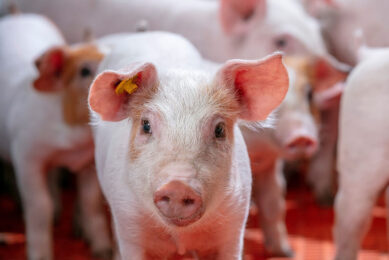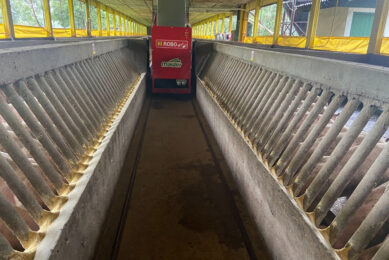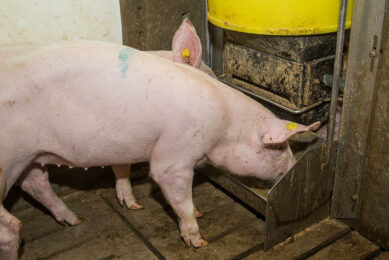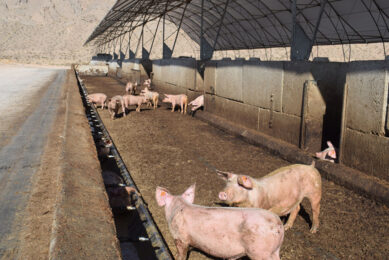Rye: Influence on Salmonella and boar taint in finishers
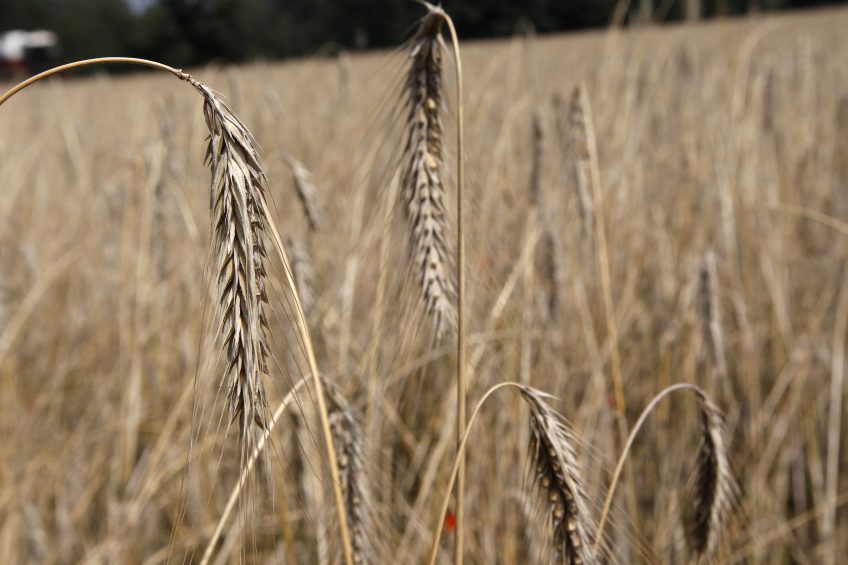
An intensive German study involving many finisher pigs has so far yielded that feeding rye appears to have a positive impact on the occurrence of Salmonella and boar taint.
Those results were reported in a press release shared by the German Raiffeisen Association on its website. According to the press release, the study is called ‘Animal-friendly pig feeding and the importance of fibre-rich cereals’ and has involved so far 16 swine farms with in total 16,194 finishing places; participation of all farms was voluntary. In up to 2 rounds, in total 27,303 animals were finished.
The effect of rye under field conditions
The study was started over 1 year ago, the press release explained, to try the effect of rye under field conditions, after more academic studies had already described positive effects in terms of nutritional value and animal welfare and health.
It was conducted by the German University of Veterinary Medicine (TiHo) in Hanover, in cooperation with the German seed company KWS Lochow and the livestock trading company Walsrode-Visselhövede.
Among the finishing farms were 9 keeping entire, uncastrated males as finishers, which meant that a total of 19,187 boars were included in the study. Adherence to a given feeding concept formed the basis for participation in the field study. The proportion of rye was defined in the ration design to 40%. Under investigation was the effect of feed rich in rye on Salmonella occurrence as well as boar taint as a result of skatole in finisher pigs.
Clear reduction of Salmonella
According to the press release, the studies yielded a clear reduction of Salmonella occurrence. Results improved in 11 out of 16 farms; altogether the findings were approximately 35% lower. This supported the hypothesis that the forced butyrate production has a positive effect on intestinal health and goes against Salmonella invasion.
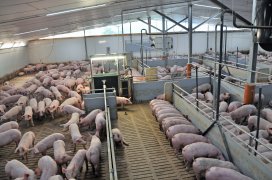
The University of Veterinary Medicine in Hanover also researched the effect of silage in liquid feed for finishers
The press release also mentioned that in the field study, a clear reduction of the findings of boar taint was noted, which went as far as a complete avoidance of boar taint. Boar taint was observed to have gone back to zero on 8 out of 9 farms.
Performance figures up, mortality down
In addition, performance figures grew with an average daily feed intake of over 800 g, and simultaneously a backfat thickness of 13 mm. Mortality also dropped to half in comparison to a prior round.
Initial results were shared in November 2017. In the course of 2018, the study will be continued by the 3 project partners. More farms are involved, to include a target of around 100,000 animals.



